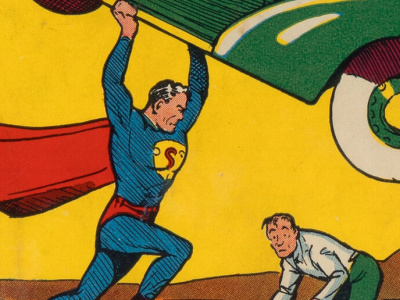Rolling for Initiative is a weekly column by Scott Thorne, PhD, owner of Castle Perilous Games & Books in Carbondale, Illinois and instructor in marketing at Southeast Missouri State University. This week, Thorne explores the concept of heuristic and how they change.
Every so often I like to take a look at social sciences and behavioral economics and see how they apply to game retailing, the game industry and even the comic industry so this week let us digress into the area of heuristics. Heuristics can best be thought of as a set of internal rules that we develop based on prior experience and readily available information that we use to solve problems facing us. If, for example, you have tried pizza in the past and liked it, if a friend asks you to go out for pizza or order one in for dinner, you are likely to agree. Other factors will influence the decision such as how much money you have and if you like the restaurant from which your friend proposes to order pizza (another heuristic).
Stores use heuristics to help us when we decide which products to order and how much of a product. A classic example is that numbers on the second or third set in a Magic: The Gathering block generally run significantly smaller than do orders on the first set in a new block. Over time, stores have learned that the second set in a block generally sells much more slowly and in smaller quantities than does the first set, hence orders of the new set come in smaller and stores now use this as a heuristic when putting in orders for sets. Similarly, in the comic industry, second issues of new comic series are notoriously harder to find than are first issues. This is due to the heuristic that comic retailers have developed over time that "Customers pick up the first issue of a title to determine if they like it. A certain percentage will not and so will not pick up the second issue, so order fewer issues of issue #2."
Much like any belief, heuristics can and do change over time as store owners receive information that causes them to change. A great example of this is the "TableTop bump." When the TableTop webseries first premiered, stores noticed a significant increase in sales of titles that had appeared on the series. Sales of Carcassonne, Ticket to Ride and Last Night on Earth, while steady at the time, saw noticeable upturns in sales after the game appeared on the show.
This bump in sales proved reliable enough that stores planned increased orders of a game for the period right after an episode dropped and saw increased sales of the game for several months afterward. This continued for the first two seasons of the show but the power of TableTop to drive sales of a game that appeared on the series waned markedly as customers did not purchase the games featured on the third and fourth seasons as avidly as they did the games on the first two seasons. The heuristic used by the store changed from "Stock larger quantities of whatever game is on the new episode of TableTop" to "Oh, there’s a new episode of TableTop out? I will watch it when I get time." Why the change? I have not looked into the reasons but the heuristic did definitely change as any will with additional information and/or changes in belief.
The opinions expressed in this column are solely those of the writer, and do not necessarily reflect the views of the editorial staff of ICv2.com.

Column by Scott Thorne
Posted by Scott Thorne on October 9, 2017 @ 1:04 am CT
MORE GAMES
At Recent Heritage Auction; Frazetta Original Comic Art Closes Over $1 Million
July 11, 2025
An Action Comics #1 cover wrap hammered at over $400,000 at Heritage Auctions' June 26-29, 2025 Comic & Comic Art Signature Auction.
As Chief Growth Officer
July 11, 2025
Paizo, Inc. has hired Christian Moore as their Chief Growth Officer, the company announced.
MORE COLUMNS
Column by Scott Thorne
July 7, 2025
This week, columnist Scott Thorne looks at the effect of Diamond Comic Distributors' bankruptcy on the games industry.
Column by Rob Salkowitz
June 30, 2025
Columnist Rob Salkowitz talks to a mid-sized publisher who told him we are at "DEFCON 2, if not DEFCON 1."








